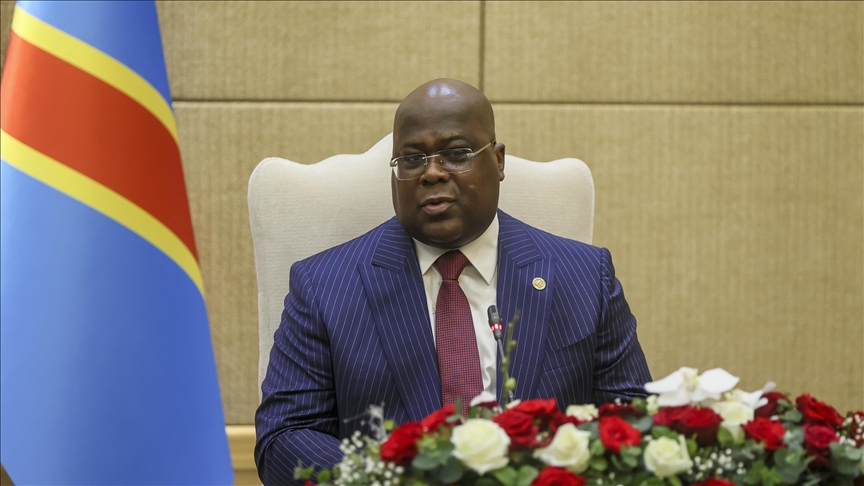

By Anadolu Agency
KIGALI, Rwanda
The Democratic Republic of Congo’s president has called for a speedy withdrawal of the UN peacekeeping mission in his country.
The UN Organization Stabilization Mission in Congo (MONUSCO) has been deployed in eastern DR Congo since 1999.
Addressing the 78th UN General Assembly session in New York on Wednesday, Felix Tshisekedi expressed disappointment with the effectiveness of the mission in stemming violence.
“It is time for the DRC to become the main actor in its stability. It is illusory and counterproductive to count on MONUSCO to restore peace and stability. Its withdrawal has become necessary to ease tensions between populations and the mission,” he said.
Recently, a series of protests erupted in DR Congo against the UN peacekeeping force, which people accuse of failing to curb violence by multiple armed groups.
On Aug. 30, more than 50 people were killed in the eastern city of Goma, the capital of the North Kivu province, after the army intervened to disperse members of a religious sect, called Natural Judaic and Messianic Faith Towards the Nations, who had gathered to protest the presence of the UN peacekeeping force in the country.
Thousands of people in the two most conflict-affected provinces of North Kivu and Ituri live in camps.
In 2020, the UN announced that a phased withdrawal of its largest mission would begin in 2024.
But Tshisekedi indicated he wants the gradual withdrawal to start this year.
He expressed frustration that the heavily-funded mission of about 15,000 peacekeepers “has failed to confront the rebellions and armed conflicts, and protect the civilian populations.”
Tshisekedi also noted that it is important for the country to explore new mechanisms for strategic collaboration with the UN, taking into account the current realities of the country.
We use cookies on our website to give you a better experience, improve performance, and for analytics. For more information, please see our Cookie Policy By clicking “Accept” you agree to our use of cookies.
Read More